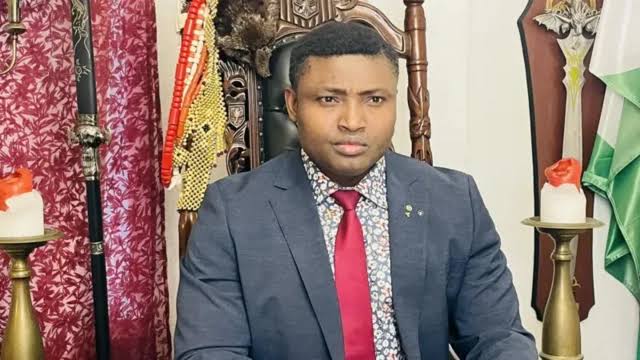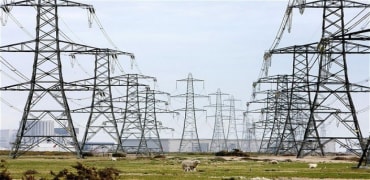From Finland To Justice: How Simon Ekpa's Arrest Could Shake IPOB'S Agitations
"From Finland to Justice: How Simon Ekpa's Arrest Could Shake IPOB's Agitations"
By Achimi Muktar
In a move reverberating across Nigeria and beyond, Finnish authorities have detained Simon Ekpa, a key figure in the controversial Eastern Security Network (ESN), for terrorism-related charges. While his arrest has drawn cheers from many quarters, it also raises critical questions about the future of the Indigenous People of Biafra (IPOB), the separatist movement he claims to represent, and Nigeria’s handling of internal unrest.
Ekpa, a Finnish citizen of Nigerian origin, faces allegations of inciting violence in Nigeria's South-East through his inflammatory online rhetoric. Described as a self-styled “Prime Minister” of the Biafra Republic Government-in-Exile, Ekpa allegedly spearheaded campaigns that fueled attacks on civilians, security forces, and public institutions in the region.
A Wanted Man
The arrest comes months after Nigeria’s Defence Headquarters declared Ekpa among 97 individuals wanted for terrorism. Brigadier General Tukur Gusau, the Director of Defence Information, emphasized the urgency of extraditing him to Nigeria to face justice.
“His arrest in Finland marks a significant step in addressing the violence he orchestrated from afar,” Gusau stated. “We are optimistic about his extradition to Nigeria to ensure he answers for his crimes.”
The IPOB Denial
Despite Ekpa’s claims of allegiance to IPOB leader Nnamdi Kanu, the group has categorically disowned him. IPOB spokesman Emma Powerful reiterated, “Simon Ekpa is not affiliated with IPOB or the Eastern Security Network. Our concern remains the release of our leader, Nnamdi Kanu, who has been unjustly detained.”
This public disavowal reflects IPOB’s efforts to distance itself from Ekpa’s increasingly violent tactics, which have alienated even staunch supporters of the Biafra cause.
International Pressure Mounts
Ekpa’s arrest has been widely applauded by Nigerian authorities and citizens alike. Former aviation minister Femi Fani-Kayode and ex-presidential aide Bashir Ahmad were among those hailing the Finnish police’s intervention.
Fani-Kayode labeled Ekpa a “notorious coward” and a “man of blood,” accusing him of inciting violence that led to countless deaths in Nigeria. Ahmad echoed these sentiments, suggesting Ekpa should face extradition to Nigeria after serving any sentence imposed in Finland.
A History of Violence
Since its inception, the ESN, under Ekpa’s influence, has been accused of escalating insecurity in Nigeria’s South-East. Initially created to protect local communities, the group’s operations allegedly devolved into violent enforcement of sit-at-home orders, arson, and targeted attacks on government and civilian entities.
Ekpa’s calls to boycott the 2023 general elections further exacerbated tensions in the region, prompting international petitions for his arrest.
A Divisive Figure
While some hail his arrest as a victory for justice, others within the Igbo community remain wary. Ohanaeze Ndigbo, the apex Igbo socio-cultural group, called for due process in Ekpa’s case but reiterated its priority: the release of Nnamdi Kanu.
“We support legal action against wrongdoing, but the Federal Government must release Kanu, who has committed no crime,” said Ohanaeze chieftain Chief Dubem Silas.
The Road Ahead
The case against Ekpa underscores the complex interplay of separatism, state sovereignty, and international law. Finnish authorities have signaled their commitment to a thorough investigation, highlighting extensive global cooperation in the probe.
As Nigerians await the outcome of Ekpa’s legal battles, the debate surrounding IPOB’s legitimacy and the government’s approach to regional grievances remains far from resolved.
For now, Simon Ekpa stands as a cautionary tale of how digital platforms can amplify voices—sometimes to devastating effect. Whether his arrest will lead to greater stability or deepen divisions in Nigeria's restive South-East remains to be seen.






















